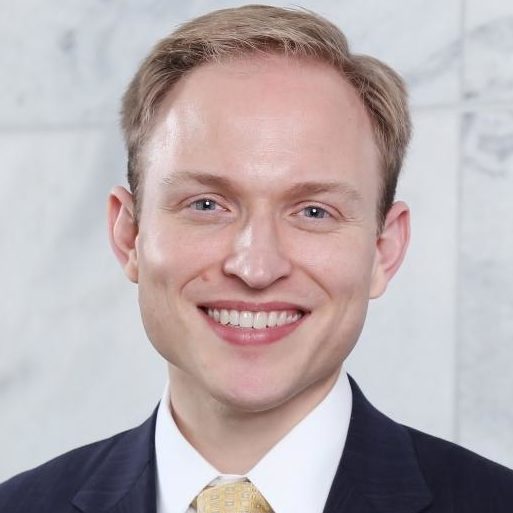
Legal scholar reexamines the formal rulemaking process in response to criticism.
Professor Bill Funk’s response to my earlier essay, Looking More Closely at the Platypus of Formal Rulemaking, critiques arguments that I make—and even ones that I do not. In my essay, I referred to formal rulemaking as a platypus—a rare, egg-laying mammal—because it is rulemaking with trial-like adjudicatory proceedings. I argued that formal rulemaking and similar procedures, such as the “public hearing” requirement for certain significant rules in the proposed Regulatory Accountability Act (RAA), should not be dismissed out of hand, as they typically are. Here, I briefly consider his useful criticisms.
Let us first get his misstatement of my argument out of the way. Funk says, “Barnett may well be right to suggest that in some situations the costs of formal rulemaking could be justified, but he could not be more wrong to argue that the circumstances that would trigger formal rulemaking under the RAA are among those situations.”
To be sure, I argued—and Funk appears to agree—that formal rulemaking may sometimes be appropriate. But, despite saying that I was less skeptical than others are, I expressly took no position on the public hearing requirement of the RAA:
“As more scholars, policymakers, and interested parties grapple with formal rulemaking’s domain, we might collectively determine that public hearings do not make sense even under the conditions that the RAA would demand. But we should evaluate formal rulemaking on its merits in each situation—and not succumb to its myths.”
In short, I am skeptical of the horror stories over formal rulemaking and am willing to consider its virtues—and inherent, as opposed to unnecessary, costs—within the RAA or other regulatory schemes and how it can best function. Funk criticizes my view in five key points, mostly within the context of the RAA.
First, he argues that formal rulemaking and similar proceedings will render rulemaking more complicated, require agencies to hire litigators, and divert now-testifying agency experts from “their primary functions.”
Although I suspect that he is correct, these inherent costs of formal rulemaking serve useful ends—providing additional scrutiny over, and a closed record to support, agency action. For significant rules, is it really so problematic that the agency must expend more resources? That agency employees must justify their positions under cross-examination and close scrutiny? That agencies, almost all of which employ litigators, have litigators prepare for rulemaking hearings as part of their docket? That a closed record is required for significant rules? Countervailing considerations may lead us to think that these costs are not worth the additional benefits in certain cases. But I am not convinced that formal rulemaking in inappropriate for all significant rules simply because it is, in some manner, more burdensome.
Relatedly, Funk finds my suggestion that agencies can prevent regulated parties from obstructing rulemakings as “naïve” because “agencies have no control over ALJs.” That will surprise administrative law judges (ALJs). Agencies have authority to promulgate procedural rules and interpretive rules that bind ALJs. In fact, the RAA doesn’t require ALJs. Instead, it permits “the appointment of an agency official or [ALJ] to preside at the hearing.” And it instructs agencies to consolidate proceedings and use common counsel when parties have similar issues. Moreover, Funk does not dispute that, based on Aaron Nielson’s research, other state and federal agencies use formal rulemaking efficiently.
Second, Funk criticizes my argument that the two key U.S. Supreme Court decisions that led formal rulemaking into decline are unpersuasive. They narrowly interpreted the triggering language in the Administrative Procedure Act (APA) for formal rulemaking, permitting agencies to avoid it. He argues that their “lack of technical craftsmanship…is hardly an argument in favor of reviving formal rulemaking.” Fair enough; let me clarify my position.
As I explained in an article drawing on archival research into these decisions, my concern is that these decisions gave short shrift to congressional intent. They are confused opinions that seem motivated by silent policy considerations or docket-clearing impulses—coincidentally occurring while the U.S. Food and Drug Administration’s infamous Peanut-Butter Rule was morphing from an extreme circumstance into the paradigm of no-good-horrible-very-bad formal rulemaking.
Indeed, Funk argues that “most thought [formal rulemaking] was laid to rest because of its inherent problems.” Not only would such pure policy-based interment be improper for the Supreme Court in statutory-interpretation cases, but the parties did not engage in a policy debate. To paraphrase Funk, the lack of craftsmanship in the decisions is hardly a reason to dismiss formal rulemaking.
Third, he argues that I am “naïve or disingenuous” for suggesting that formal rulemaking is not always industry-friendly. What is striking is that he attacks my sophistication or veracity but fails to discuss the example—Congress’s most recent use of formal rulemaking—that I gave to support my point or my assertion that formal rulemaking can discourage regulatory capture.
Instead, Funk contends that the RAA’s call for formal rulemaking “certainly does not have support from non-industry interests.” Even if that is so, it may be—as I have argued—that formal rulemaking’s myths lead to reflexive opposition.
Funk seems most concerned over how the public-hearing trigger under the RAA will apply in practice. The RAA requires a public hearing when the agency promulgates certain rules that the Administrator of the Office of Information and Regulatory Affairs (OIRA) determines will have an “annual effect on the economy” over certain dollar amounts. Funk thinks that the Administrator will use her discretion to exclude deregulatory actions because “effect” is not defined to include more than costs. Although I briefly explained my differing view, his criticism goes to the appropriate trigger for formal proceedings, not their utility.
In fact, I share some of his concerns. For instance, I prefer a bill that permits agencies to make the determination, not OIRA. I support clearer definitional language and judicial review of the “triggering” decision (which the RAA does not permit), despite its ability to delay agency action. I would also consider higher dollar thresholds for some of the reasons that he mentions. And I would clarify that the agency can, as with APA formal rulemaking, limit cross-examination when the parties suffer no prejudice. I am certainly open to more improvements to the RAA. It is important to note is that these matters concern the triggers for public hearings.
Fourth, he argues that agencies may not sufficiently account for the public’s interests even when they would appear to align, and that public-interest groups will have to expend more resources, such as using litigators. These are empirical questions, and I am more skeptical than he is that interest-divergence will arise frequently—or any more than it does as to other agency actions—or that the additional costs will be crippling. Without more, I am not prepared to forsake formal rulemaking’s increased transparency, participation, and procedural protections.
Finally, Funk notes that I sketched out four factors, some combination of which may indicate when formal rulemaking is appropriate, such as when rules have determinative factual issues or certain significance. He applied those factors to the RAA. I commend him for doing exactly what I called for. But his own argument contradicts his contention that “the only RAA triggering provision that relates to [my] list is that the proposed rule have a $1 billion effect on the economy.” As he notes, the agency needs only to grant a hearing under the RAA if there is, in brief, a “complex factual issue” that is “genuinely disputed.” So, the RAA implicates at least the two factors identified above.
But I gather than Funk thinks that these two factors together are insufficient to require formal rulemaking because the former factor will “slow down, if not make impossible, the development of regulations that have major effects on the economy” and the latter is so broad that it will reach nearly every rule. Once again, fair enough. But I am more optimistic.
A slower process does not concern me if it leads to better reasoned, tested, and transparent rules. After all, I have more faith than Funk that agencies can keep formal rulemaking moving along. Moreover, as I discussed in my essay, I think the same processes for promulgating a rule should apply to repealing or altering a rule. The capacious reach of the factual-issue factor gives me pause. But to my mind, it means that we need to think about which kinds of factual issues deserve additional process.
Indeed, Funk’s discussion suggests that we actually agree on what the key issue is here: when is formal rulemaking appropriate? And, I would add, how have agencies used formal rulemaking successfully? My openness to formal rulemaking is intended to be the beginning of a discussion, not a judgment on its propriety. I am open to evaluating the factors that I mentioned, evidence that contradicts my assumptions on numerous empirical issues, or evidence that contradicts reports that formal rulemaking works well in other agencies. But I am not open to shunning formal rulemaking without more significant inquiry into its potential.
This essay is part of a series, entitled Assessing the Regulatory Accountability Act.




